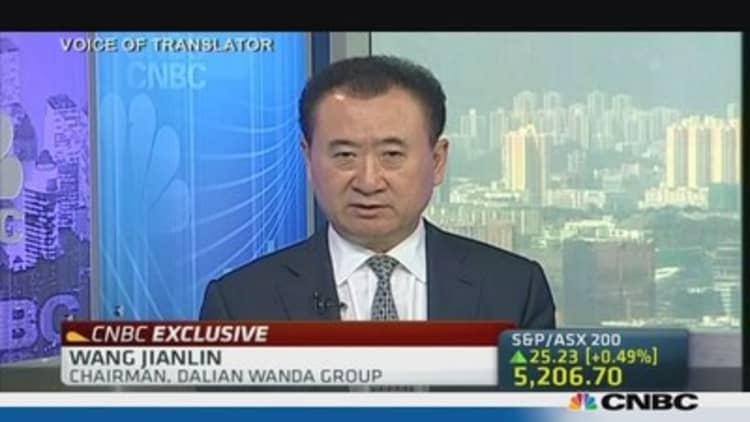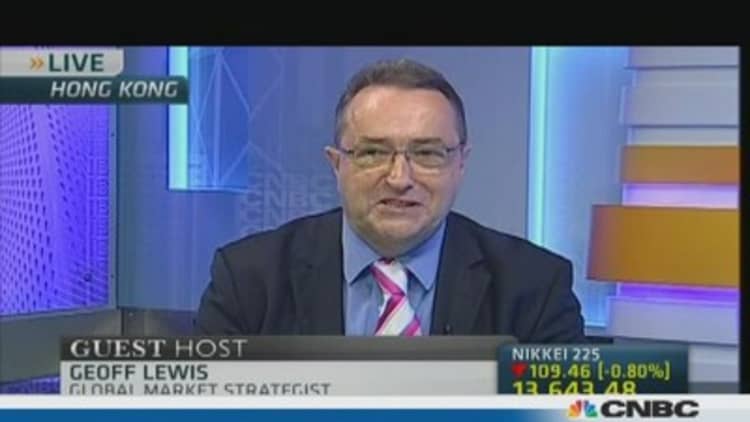Hong Kong's powerful property developers are locked in a price war as measures to cool one of the world's most expensive real estate markets force them to impose steep discounts to hit sales targets, with many turning to mainland China to fill the gap.
Developers such as Cheung Kong, controlled by Asia's richest man Li Ka-shing, are even throwing in free car park spaces - which can be worth $100,000 or more in densely populated Hong Kong - to lure buyers at a time when quarterly transactions are at their lowest level since 1996.
Real estate agents have also taken to the streets to urge the government to relax cooling measures that they say could cost them their jobs, although market watchers say the government is unlikely to budge any time soon.
(Read more: Chinese property immune to tapering: China's richest man)
"The Hong Kong government has made it clear that it can't afford the risks of removing the measures," said Thomas Lam, head of research for greater China at real estate firm Knight Frank.
He added the government was not expected to revoke the measures, which include higher stamp duties for buyers and home loan curbs, in the next 12 to 24 months.
Combined contracted property sales of Hong Kong's four major developers - Sun Hung Kai Properties, Cheung Kong, Henderson Land Development and New World Development - dropped 39 percent year-on-year in the first half of 2013, according to Phillips Securities.

The latest earnings reports from Hong Kong developers show tightening steps are indeed taking a toll.
Sun Hung Kai Properties, which has a market value of $35.5 billion, is expected to join that list later on Thursday, when it is forecast to report its first decline in annual underlying profit since the company started reporting underlying profit in 2005, according to analysts.
(Read more: China's property sector is booming even as economy slows)
Many market watchers expect the likes of Cheung Kong and Sun Hung Kai to miss full-year sales targets.
Leader stands firm
The battle to rein in property prices has pitted Hong Kong Chief Executive Leung Chun-ying against tycoons such as Cheung Kong's Li, who publicly opposed Leung in last year's leadership election.
Leung reiterated on Wednesday that the city had no plans to relax recent property cooling measures, given the continuing risk of a real estate market bubble.
"After careful consideration, the government considers that any exemptions or tax rebates would weaken any relevant property cooling policies aimed at lowering the risk of a property market bubble," Leung said at a business luncheon.
"The property market's bubble risk is still something we can't ignore," he added, noting home prices continued to rise an average of 0.4 percent between March and July this year.
(Read more: China, HK Real Estate Markets to Thrive: Pro)
Hong Kong began taking steps to cool property prices in October 2009, although no real impact had been seen until the most recent moves in February.
"There are no speculators in the market now due to the tightening measures, so developers are forced to sell properties close to the market price," said research associate director Wong Leung Sing at Centaline Property Agency.
Developers are selling new homes at about a 20 percent premium over prices in the second-hand home market, a sharp fall from price premiums of between 50 percent and 80 percent before the latest round of property curbs started last October, said Knight Franks' Lam.

Cheung Kong offered a 10 percent discount and paid an extra 3.75 percent stamp duty on sales of its newly launched project "The Rise" in the New Territories district of Hong Kong. Smaller rival New World Development offered a 10 percent price cut to buyers who provided instant payment.
Centaline Property, one of the city's leading real estate agents, said in July the inventory levels of residential properties was at its highest level in nine years. It predicted that there would be about 15,000 new units on sale in the second half of this year, down from nearly 45,000 in the second quarter alone.
(Read more: China home prices rise for sixth straight month)
Moving to China
With no sign of a near-term let-up in Hong Kong's property policy, developers are now increasing investments in mainland China to cushion the blow at home.
"Most developers in Hong Kong are increasing their portfolios in China," said Charles Chan, managing director of valuation and professional services at real estate services provider Savills.
"The policy risk is comparably lower (in China) than in Hong Kong," Chan said, adding that developers also found China's lower land prices and construction costs attractive.
Sun Hung Kai last week outbid Hong Kong developer The Wharf for a commercial site in Shanghai that set a record at 21.77 billion yuan ($3.6 billion), a move analysts said would help it to be a prime landlord in China's financial center.
The company said the acquisition, its largest ever, was in line with its strategy to invest in key Chinese cities and would "further strengthen its market position and brand" in China.
(Read more: Here's Why Hong Kong Has to Meddle With Property)
Cheung Kong, which only sold less than a 10th of its full-year sales target in the first half, recorded a 29 percent year-on-year jump in its first-half turnover in mainland China, while its overall turnover dropped 17 percent compared with last year.
The Wharf Holdings, which replicated its flagship Hong Kong shopping mall Times Square in four Chinese cities, recorded a 39 percent rise in core profit for development properties in China during the first-half, while the same contribution at home plunged 93.7 percent during the period.
The company is now planning to build five shopping mall and office complexes in cities across China by 2016.

